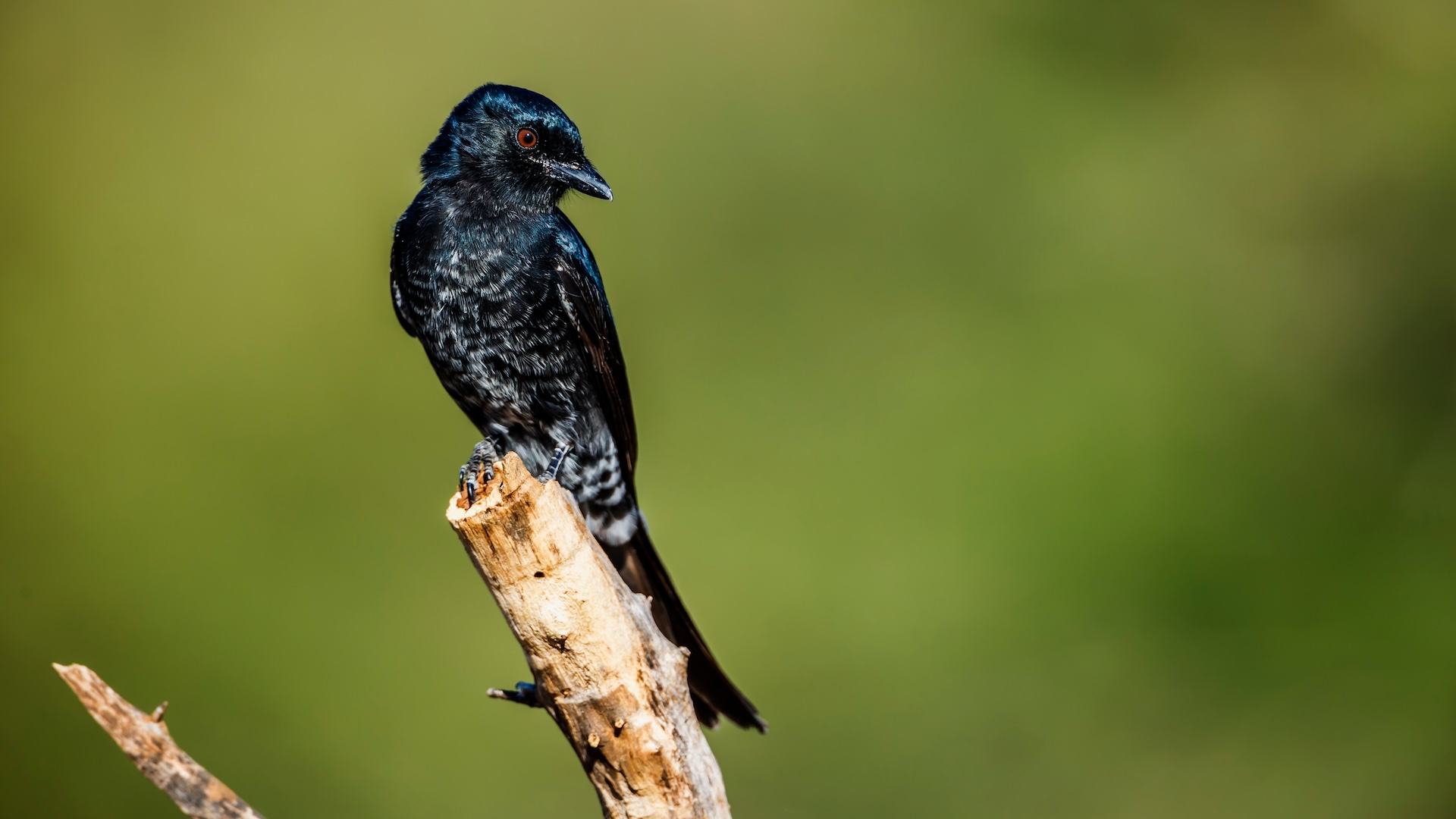Every year, we learn more about how animals communicate with each other. Research shows that elephants greet each other by flapping their ears and making rumbling noises, sperm whales alter their clicking noises based on the context of their conversation, and naked mole rat colonies even have their own “accents.”
It’s clear that communication in the animal kingdom is complex. But with all of these unique ways to communicate, is it possible for an animal to learn the “language” of another species?
It turns out, there are examples of animals learning to understand — and even use — vocalizations or signals from species other than their own. But there’s still a lot of questions about what’s going on inside those animals’ heads.
First off, it’s important to note that, although “language” is a useful metaphor when we’re thinking about one species understanding another, animals don’t actually have languages in the way humans do.
“Language is kind of a species-specific communication system to humans,” Simon W. Townsend, a professor of evolutionary anthropology at the University of Zurich, told Live Science. When studying animals, scientists instead examine specific features of communication, like a certain sound having a certain meaning, rather than using human-centered terms like “language.”
Related: What’s the chattiest animal?
When it comes to picking up on sounds from other species, birds are one of the best-studied animals. One study on songbird migration suggested that solitary birds could understand the calls of other bird species on their migration pathway, perhaps helping them to stay safe and navigate the long journey.
“We essentially looked for non-randomness, looked for patterns in the vocalizations,” Benjamin Van Doren, first author of the study and an assistant professor of natural resources and environmental sciences at the University of Illinois Urbana-Champaign, told Live Science. By seeing if different species of birds were recorded nearby each other making vocalizations, the researchers gathered data that supported the notion of cross-species communication.
The research dispels the notion that songbird migration is a lonely journey, as was once thought. However, their data still isn’t able to decode exactly what the birds are “saying.”
“It’s logical to wonder if there are social connections among species,” Van Doren said. “I think these calls could contain more information than we currently understand.”
But learning a “language” is about more than just understanding what you hear; it’s about being able to speak it, too. That’s where the fork-tailed drongo (Dicrurus adsimilis) — a small, black bird found across Africa — excels.
Drongos have a habit of following other animals around in the hope of stealing some of their food. Thomas Flower, a biology instructor at Capilano University in Canada, studied these birds in the field as they followed a mob of meerkats. He found that the drongos would use their own alarm calls — a squawk that indicates a predator is approaching — to scare the meerkats into their holes, allowing the drongos to swoop in and grab any food scraps.
But that strategy eventually leads to a “boy who cried wolf” situation, Flower said. The meerkats realize the drongo-specific alarm calls are a ruse, so they stop dropping their food and hiding when they hear one.

This is where the drongos’ special talents come in. Fork-tailed drongos not only recognize the warning calls of the other animals around them, but they also learn to replicate those calls to their own advantage. When the birds realize their own alarm call is no longer working, they start mimicking the alarm calls of other birds — or even replicating the meerkats’ own alarm call. By regularly swapping out alarm calls from different species, the drongos keep the meerkats on edge and keep the food flowing.
“They know to mimic the species they’re following,” Flower said. “By doing that, they can keep their deception racket going.” Drongos also follow other birds and mimic their alarm calls to steal food from them.
He explained that this strategy shows that fork-tailed drongos are capable of flexibly learning a sound from another species and using it to their advantage. When one sound stops working, they know to pivot to a new one that will.
“It shows that animals can be open-ended learners,” Flower said.
Flower is still determining exactly what’s going on in a drongo’s mind when it uses those false alarm calls to its advantage. It’s unclear whether drongos intend to trick other animals — which would imply more complex cognitive processes — or whether they’ve just learned that repeating certain sounds results in a meal.
“Providing clear experimental evidence of intentional deception, or not, is very tricky,” he told Live Science in an email.
Flower said he still hasn’t seen evidence that young drongos understand that they’re deceiving other animals when they start mimicking alarm calls. But he pointed out that young humans also repeat noises they don’t understand and eventually learn meaning through trial and error. For now, drongos do show some of the hallmarks of “language” learning, but much remains a mystery.
